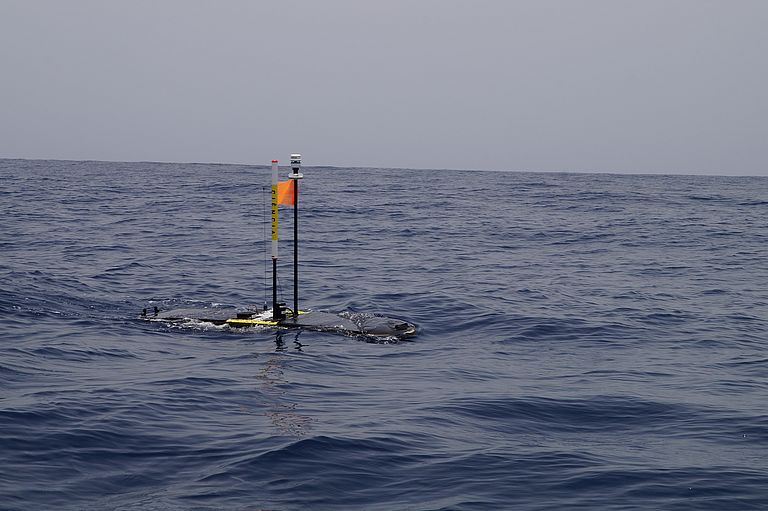Experts on the Atlantic Meet in Kiel
160 participants at the second annual meeting of the European project AtlantOS
Discoveries and oppression, trade and war, voluntary and forced emigration – the history of Europe, Africa and America is, for better or worse, unthinkable without the Atlantic as a connecting thoroughfare. The network of contacts between the continents is so close that the ocean has been nicknamed “the pond.” Nevertheless, knowledge of the Atlantic is still patchy and literally scratches just the surface. Many processes within the Atlantic water masses which directly affect the weather and climate of the bordering continents, their food supply or their vulnerability to natural disasters, are largely unknown or not well understood. By means of improved ocean monitoring the European research project AtlantOS should ensure that some of these knowledge gaps are closed in the coming years.
This week, 160 researchers from all over Europe, North America and from partner countries in Africa and South America have gathered in Kiel for the second AtlantOS project meeting. “The ocean is a very complex system in which all components are closely interlinked. Therefore, we can get a better understanding of it only through a joint effort of many countries and many scientific disciplines,” says the oceanographer Prof. Dr. Martin Visbeck from GEOMAR Helmholtz Centre for Ocean Research Kiel, who is coordinating the project.
“AtlantOS is not only interesting from a purely scientific point of view. Especially protection against natural disasters, the effects of climate change or the food supply are politically and economically relevant issues,” says Professor Visbeck. Therefore, a group of marine scientists and oceanographers from several European countries met earlier this week in a separate workshop with experts from the Organization for Economic Cooperation and Development (OECD) to discuss the economic potential of improved ocean information.
The actual project meeting will serve primarily to identify the inventory of existing knowledge about the Atlantic and methods for monitoring biological, physical and biogeochemical processes. “There are already many initiatives to survey the Atlantic, for example, as part of the Global Ocean Observing System, GOOS short. But previously many measurements were carried out in temporary and localized projects,” says Professor Visbeck, “We want to get a broader view of the Atlantic.” In addition, the scientists will use the meeting in Kiel to prepare measurement campaigns and plan their work for the next few years, make their data more quickly and easily accessible and develop new ocean information products.
Friday’s schedule includes a workshop organized jointly by AtlantOS and the Cluster of Excellence “The Future Ocean”, which specifically deals with methods to measure and monitor biodiversity in the ocean. “The diversity of life is an important factor, even in the ocean. But there are hardly any uniform definitions or measurement methods that provide a reliable basis for international observation,” explains Professor Visbeck, who is also the Speaker for the Cluster of Excellence “The Future Ocean”.
“Rarely do so many experts on the Atlantic from all disciplines come together in one place. This alone is a success of the AtlantOS project. The Atlantic has a huge impact on all people living on its shores. For this reason we need to understand it better,” says the project coordinator.
Contact:
Jan Steffen (GEOMAR, Communication & Media), Tel.: +49 431 600-2811, presse(at)geomar.de






